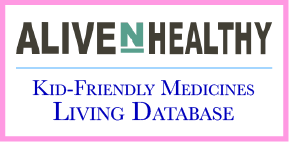Down’s Syndrome Cure Using Nutrients and More…
Down’s syndrome, also known as Down Syndrome, or trisomy 21, is the most common chromosomal disorder that usually causes developmental delays and mild to moderate intellectual disabilities. Globally, Down’s syndrome occurs in 1 out of 1,000 babies each year although in the United States, the rate is higher at 1 out of 700 births. There are certain physical characteristics associated with Down’s Syndrome as well including:
- Poor muscle tone
- Shortened neck with extra skin at the back of the neck
- Small head, ears, and mouth
- Flattened facial profile
- Flattened nose
- White spots on the iris of the eye (Brushfield spots)
- Eyes that slant upward with an epicanthal skin fold that covers the inner corner of the eye
- A deep groove between the 1st and 2nd toes
- Short, wide hands
- Short fingers
- A single,deep crease across the palm of the hand
Down’s syndrome is believed to occur by chance. There is no known environmental variable or behavioral activity by parents that is known to cause this disease. Though conventional medicine doctors say that there is no cure for Down’s syndrome, in fact nutrient therapies have been used successfully to significantly reduce symptoms of Down’s syndrome in a high percentage of patients. Nutrients therapies even reduce the characteristic appearance of Down’s syndrome in young children who are treated regularly with moderate doses.
Dr. Turkel: Orthomolecular Medicine to Cure Down’s Syndrome
According to Linus Pauling, Dr. Henry Turkel had striking results with Down’s syndrome patients. He began working with Down’s syndrome patient’s in 1940 in Detroit, Michigan using vitamin therapy and developed his treatments to include:- Vitamins
- Minerals
- Digestive enzymes
- Fatty acids
- Lipotropic Nutrients
- Thyroid Hormone
- Antihistamines
- Nasal Decongestants
- Diuretics
By the 1950’s, Dr. Turkel had devoted his practice to treating only Down syndrome patients. He kept meticulous records on each one including photographs of their progress. His work was totally ignored by conventional medicine which inspired Dr. Turkel to eventually move to leave the U.S. (like many other doctors who are able to cure serious diseases). He finally settled in Israel.
Dr. Turkel proved that using moderate to high-dose nutritional supplements, he could modify the impact of trisomy-21 and mitigate the physical and behavioral expression of genetic defects caused by Down syndrome. Using his “U-Series” system, patients were able to improve their physical health and appearance as well as cognition. Dr. Turkel was one of the first doctors to show that nutrition could alter genetic programming.
How Nutrients Work to Naturally Reduce Symptoms of Down’s Syndrome
The Turkel Method has been used as a way to diminish Down’s syndrome symptoms. Dr. Turkel used orthomolecular medicine to develop a specific protocol of nutrients to administer to children with Down’s. We provide details on this method below along with the nutrients that Dr. Turkel used to reverse Down’s syndrome naturally.
Other people have refined Dr. Turkel’s methods slightly. Dr. Jack Warner, for example, a doctor in California, added physical therapy and developmental optometry to Dr. Turkel’s protocol. Developmental optometry uses special exercises to correct eye problems. He also removed the pharmaceuticals from Dr. Turkel’s protocol for Down’s syndrome. Dr. Warner formulates supplements that he calls “Hap Caps” to balance antioxidant enzymes, catalase, and superoxide dismutase. His supplements contain high doses of nutrient antioxidants and minerals along with digestive enzymes.
A woman named Dixie Lawrence-Tafoya also refined Dr. Turkel’s cure for Down syndrome in the early 1980s. She added amino acids, Piracetam and other nootropics to the protocol. She used a special Down Syndrome diet that is rich in natural digestive enzymes (raw fruits and vegetables) and that avoids foods that contain enzyme inhibitors such as nuts. She developed a product called “Nutrivene” and offers the services of a compounding pharmacy to produce the U-Series at home therapy for Down’s syndrome.
 The Kid-Friendly Medicines Living Database NOW AVAILABLE! Click here to sign up...
The Kid-Friendly Medicines Living Database NOW AVAILABLE! Click here to sign up...
Down Syndrome and Ketotic Hypoglycemia
Studies have shown that idiopathic ketotic hypoglycemia is common in Down syndrome. Ketotic hypoglycemia involves low blood glucose along with the presence of ketone bodies in the blood or urine. It is a common cause of low blood sugar (hypoglycemia) in children that can result from fasting or infection, but some studies have reported a prevalence of 7.2% of Down’s patients with ketotic hypoglycemia after early infancy. The presence of ketotic hypoglycemia in Down’s syndrome patients shows that basic nutritional deficiencies can worsen symptoms of Down’s syndrome and contribute to issues like impaired growth, poor stamina, overeating, and obesity.
GYG2 deletion is said to contribute to ketotic hypoglycemia in Down’s syndrome though some people who have the GYG2 deletion have no symptoms and show no signs of this deletion. In those with Down’s syndrome, however, this deletion can resemble glycogen storage disease type 0. Glycogen storage disease type 0 is a disease that results from a deficiency of the glycogen synthase enzyme. A deficiency of glycogen synthase enzyme leads to glycogen storage issues in the liver. Glycogen storage disease type 0 often involves fasting low blood sugar, high blood ketones, an increase in free fatty acids, with lower than normal levels of lactate and alanine. Patients with this disease conversely often develop hyperglycemia and hyperlactatemia.
Needless to say, in patients with Down’s syndrome, low blood sugar levels can cause poor cognitive function. Doctors who have worked to reverse symptoms of Down’s syndrome have found that Down’s causes specific nutrient deficiencies that contribute to low blood sugar and high blood ketones / ketotic hypoglycemia.
In those with Down’s syndrome, DNA abnormalities make patients vulnerable to certain nutrient deficiencies that, if not corrected, worsen Down’s syndrome outcomes. Correcting the nutrient deficiencies can, in 33-66% of patients, correct many of the physical and behavioral issues associated with Down’s syndrome. The use of nutrient supplements can reduce instances of low blood sugar and ketosis among other things to improve cognition and learning in those with Down syndrome.
High Blood Ketones, Low Blood Sugar in Down’s Syndrome / Ketotic Hypoglycemia Symptoms
Symptoms of Ketotic Hypoglycemia in Down’s Syndrome patients includes the following symptoms:
- Fatigue
- Muscle weakness
- Heart palpitations
- Muscle cramps
- Tachycardia (fast heartbeat)
- Agitation
- Tremors / shakiness
- Hunger
- Unusual sweating
- Feelings of burning, tingling, numbness, prickling
- Confusion
- Body temperature irregularities
- Repeated nausea and vomiting
- Abdominal pain
- Poor muscle tone
- Pale or bluish skin color (when there is no known heart or lung issue)
- Seizures
Click here to read a detailed overview of Dr. Turkel's cure for Down syndrome.
Click here to read about how the FDA restricted and covered-up Dr. Turkel's cure for Down syndrome.
Resources:

 Dr. Turkel's Down Syndrome cure also reduces physical characteristics of Down Syndrome in some cases.
Dr. Turkel's Down Syndrome cure also reduces physical characteristics of Down Syndrome in some cases.








